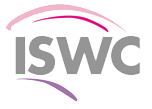Introduction
This page creates a clear path to having all of the codes necessary to complete your metadata records with Sound Credit. It follows the spirit of Sound Credit with immediately actionable steps to solve the metadata issues in the music industry.
Before the creation of this page, no single source existed for obtaining these codes, and most individual sources were ambiguous.
What are ISNI, ISRC, and ISWC codes?
Think about the way a song is created in these three groups:
- The people and organizations involved
- The song itself
- The recording of the song
There can be many recordings of one song, and many people and organizations involved. For instance, the song Yesterday by The Beatles has been covered over 3,000 times in separate recordings by other artists.
An ISNI code identifies a person or organization, which could be a songwriter, musician, artist, record label or publishing company. Each should have their own, unique number.
An ISWC code identifies a song. Songs are often referred to as musical works, and ISWC stand for International Standard (Musical) Work Code. Each song receives on ISWC.
Again, there can be many recordings of one song, so recording have their own code, the ISRC. ISRC stand for International Standard Recording Code. This is the most commonly known code. Like a song, recording receive only one ISRC.
Where do I apply for these codes

ISNI codes are assigned by your country's registration agency.
- All Sound Credit users can apply for a free, automatically assigned ISNI here (must be logged in, or create an account here)
- If you are in the USA: https://isni-us.com/
- You can apply for an ISNI through Numerical Gurus for an approximate cost of $25: http://numericalgurus.com/2016/10/31/alphabet-soup-isni/
- If you are in the UK: http://www.bl.uk/bibliographic/isni-registration-agency.html
- If you are in France: http://www.bnf.fr/en/professionals/isni_about/s.isni_registration_agency.html?first_Art=non
- For other countries, search this list: http://www.isni.org/content/isni-registration-agencies
Once you have your ISNI you're set, you should not have to re-apply.

USA
If you want to assign ISRCs to recordings for your clients, rather than for recordings you own, you will need to apply to become an ISRC Manager.
- Email isrc@riaa.com to request to become and ISRC Manager.
If you want to assign ISRCs for your own recordings, or recordings to which your company has rights, you will need to apply for an ISRC Registrant Code.

ISWC codes will be sent to you once you register a musical work with your country's ISWC agency. You will generally need to provide the following information:
- Title of work
- Names of all composers, authors and arrangers, including their CAE/IPI number
- Work classification code from the CIS standards list
- If you are in the USA, the ISWC agency is ASCAP, and you can receive and ISWC even if you are not a member.
